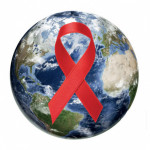Antiretroviral (ARV) regimens based on the integrase inhibitor dolutegravir are apparently the safest and most effective treatments for pregnant women living with HIV. So found a large multinational study that compared Atripla (efavirenz/tenofovir disoproxil fumarate/emtricitabine) versus dolutegravir plus either Descovy (tenofovir alafenamide/emtricitabine) or Truvada (tenofovir disoproxil fumarate/emtricitabine).
Atripla contains the two drugs included in Truvada plus efavirenz, an ARV associated with neuropsychiatric side effects, such as nightmares. (In the United States, Atripla is no longer recommended as a first-line treatment because of such side effects.) Descovy is equivalent to Truvada except that the tenofovir component has been updated to a version associated with lower markers of bone and kidney toxicity but greater weight gain and higher cholesterol. Dolutegravir is sold as a stand-alone tablet under the brand name Tivicay and is included in the combination-tablet ARV regimens Dovato, Juluca and Triumeq.
Initially, past research suggested that dolutegravir was associated with an increased rate of neural tube birth defects among infants born to mothers who took the ARV during pregnancy. But studies presented in 2019 found that the absolute risk was actually low—at 0.3% of the newborns in a study conducted among pregnant women in Botswana, compared with a 0.1% risk in the general Botswana population. A recent analysis found that the birth defect rate is also low among HIV-positive women in the United States who use dolutegravir during pregnancy.
Since 2013, the World Health Organization (WHO) has recommended that HIV-positive pregnant women in resource-limited settings receive treatment with Atripla or efavirenz plus lamivudine and tenofovir disoproxil fumarate, an essentially equivalent regimen to Atripla that swaps the generic ARV lamivudine for the emtricitabine component. In July 2019, the WHO updated these recommendations to include dolutegravir-containing regimens.
Lameck Chinula, MBBS, MMed, of the University of North Carolina, presented findings from the Phase III IMPAACT 2010 trial, also known as VESTED, at the 2020 Conference on Retroviruses and Opportunistic Infections in Boston last week.
In January 2018, the investigators began randomizing an eventual 643 pregnant women who were not on ARVs to start HIV treatment 14 to 28 weeks into their pregnancies with Atripla, dolutegravir plus Descovy, or dolutegravir plus Truvada.
The women were mostly from low- or middle-income nations, hailing from Botswana, Brazil, India, South Africa, Tanzania, Thailand, Uganda, the United States and Zimbabwe.
At delivery, 98% of the women who received the two dolutegravir-based regimens had a fully suppressed viral load, compared with 91% of the women who received Atripla. One infant in each of the dolutegravir groups was diagnosed with HIV within 14 days of birth.
Twenty-four percent of the women who received dolutegravir plus Descovy and 33% of the women in both the dolutegravir plus Truvada and the Atripla groups experienced an adverse pregnancy outcome. These included preterm delivery, low infant birth weight and stillbirth.
Such rates are consistent with those typically seen among pregnant women in low- and middle-income nations.
The study authors concluded that all three regimens are safe and effective for use during pregnancy but that dolutegravir-containing regimens better suppress HIV in this context. The scientists also found that dolutegravir plus Descovy may offer superior protection from adverse pregnancy outcomes.
No cases of neural tube defects were observed in the study. However, because the women did not receive HIV treatment during their first trimester, when the risk of ARV-related negative outcomes is likely the greatest, and because the study population was relatively modest in size, the investigators could not draw strong conclusions about neural tube–related effects from the regimens.
“When a woman living with HIV is expecting, she can be confident that the same antiretroviral therapy she takes every day to protect her own health also helps protect her future child from acquiring HIV,” Anthony S. Fauci, MD, director of the National Institute of Allergy and Infectious Diseases (NIAID) said in a press release. NIAID, a part of the National Institutes of Health, sponsored the trial. “Findings from the VESTED study suggest that a drug regimen containing dolutegravir provides the safest, most effective HIV treatment available during this critical time for women and their infants.”
To read a press release about the study, click here.
To read the conference abstract, click here.







Comments
Comments